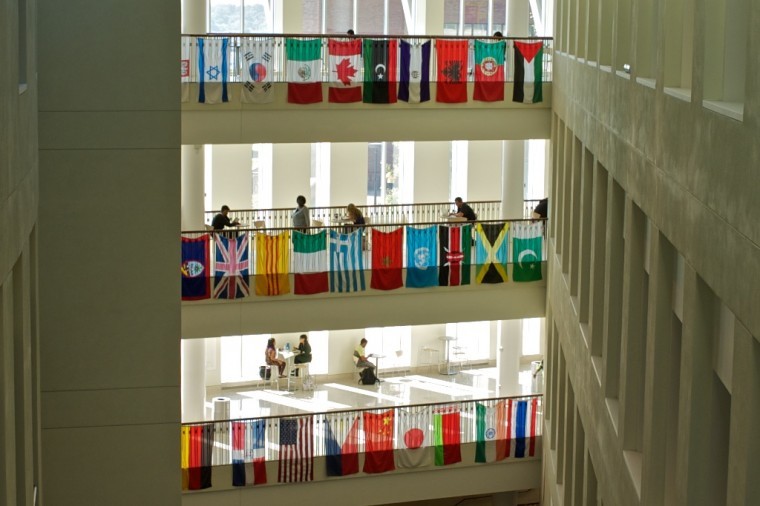There are numerous societies on campus which are strongly affiliated with either a particular ethnicity or race. Are these organizations beneficial to student campus life or do they serve to isolate students of different descents and cultures?
Here are two contrasting perspectives.
(1) Somewhat
By Brianna Grey
Our campus’s student-run organizations are a great way to connect with people who understand the unique challenges that come with being a member of a specific group of people. The Black Student Center (BSC), for example, is a great place for black students to congregate.
But shouldn’t we get to know people outside our race? Should we isolate and confine ourselves to one point of view?
UMass Boston boasts a vast array of ethnically diverse students, staff and faculty. With an exceptionally diverse population, students should be encouraged to interact and socialize with more culturally dissimilar people than themselves. Sadly, with the excessive amount of racial organizations in the university, that doesn’t seem to be the case.
Being overly immersed in these organizations might lead students to unintentionally isolate themselves, regardless of whether this isolation is intentional.
Don’t get me wrong, I really do appreciate the effort that these organizations put into getting their people together, but this effort could be better spent in enjoying one of the advantages of attending such a diverse university—learning about new cultures.
If we all come out of our shells, these clubs and organizations, we would probably all see that we’re all exactly the same. All I’m saying is we’re all here together for a reason, why isolate ourselves?
(2) No they don’t
By Osahh Aim
I think our campus benefits a great deal from these organizations. It’s pretty easy to see how one might think that these organizations might create a disunion on campus. Despite this distant possibility, I believe these organizations uplift school spirit and help forge unity on campus.
Clubs like the Black Student Center (BSC), African Student Union (ASU), and Asian American Society (AAS) all have something in common: they cater predominantly to minority students. They help minorities connect to people who share cultures, ethics and beliefs. These organizations can be seen as a home away from home.
Regardless, these clubs are incredibly active on campus. The BSC holds entertaining events numerous times throughout the semesters. These events are open to folks of every race and creed.
Even though I’m Nigerian, I’ve been to events hosted by the Haitian American Society (HAS) and I didn’t feel the least bit left out or out of place.
These organizations go a long way in educating people about cultures which might have been previously unfamiliar to them. Using myself as an example again, I learned about Groits, a fairly popular Haitian dish, by attending a HAS event.
Learning new things and having fun is enough to recompense for any existent or non-existent segregation that’s going on.
These clubs are the embodiment of unity, fun and school spirit— things which make UMass Boston, along with the stresses and trials of college education, a little bit more bearable.

